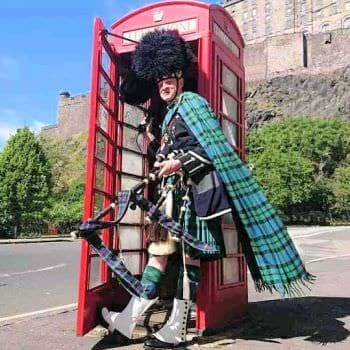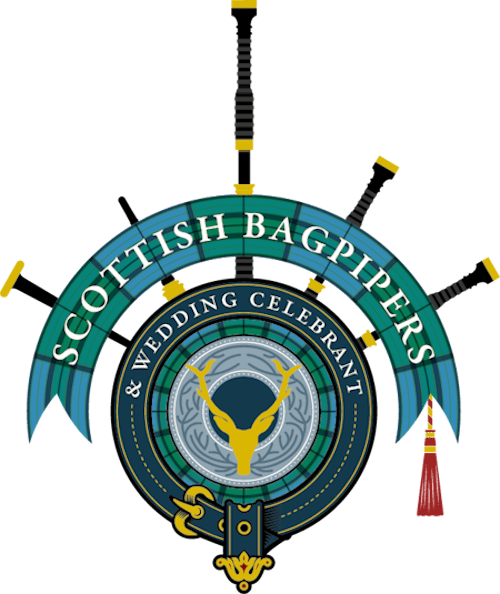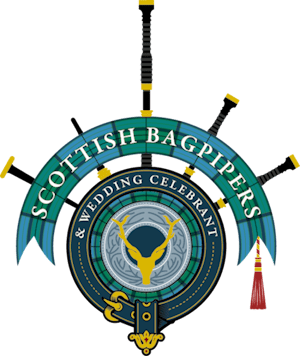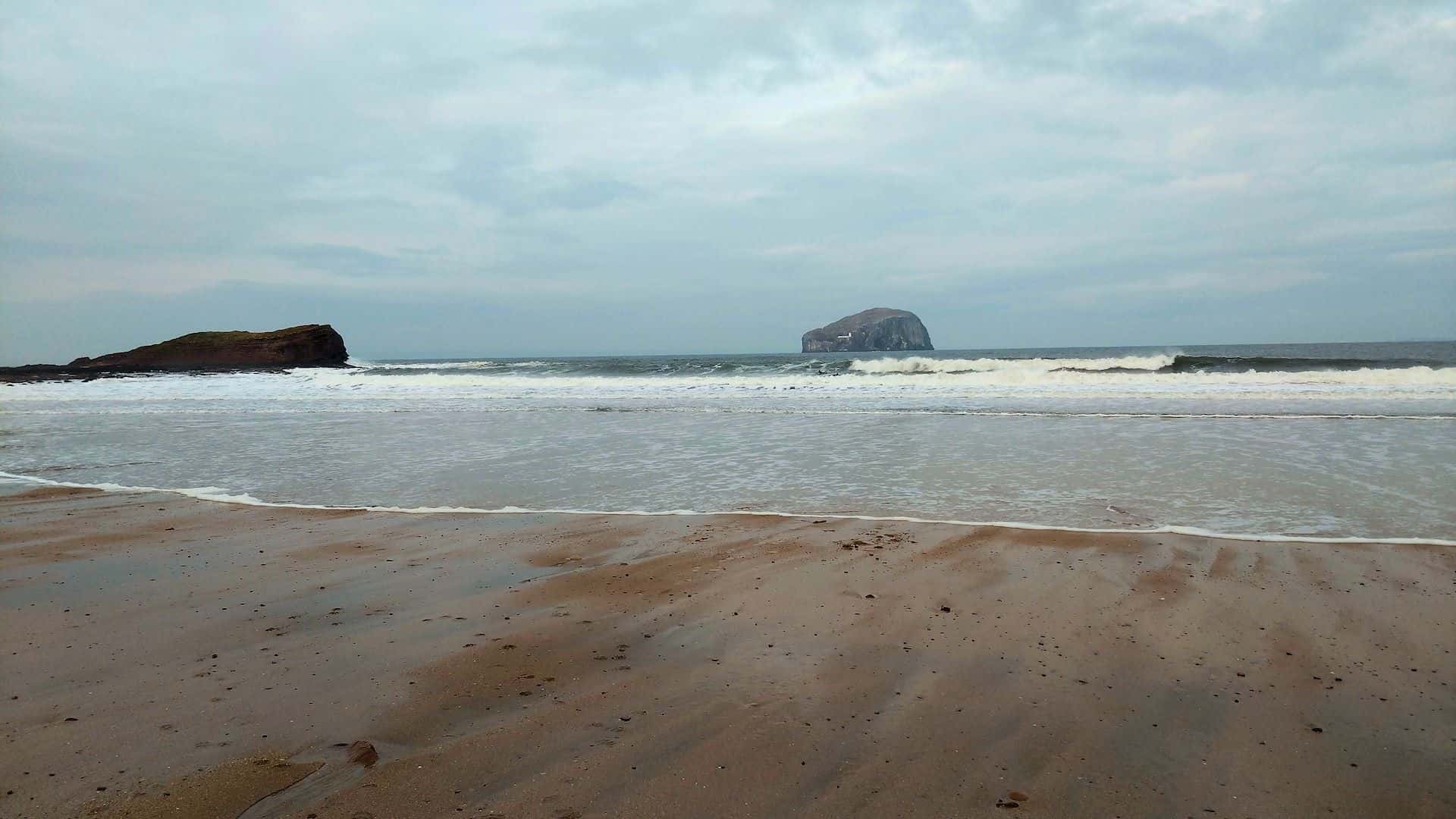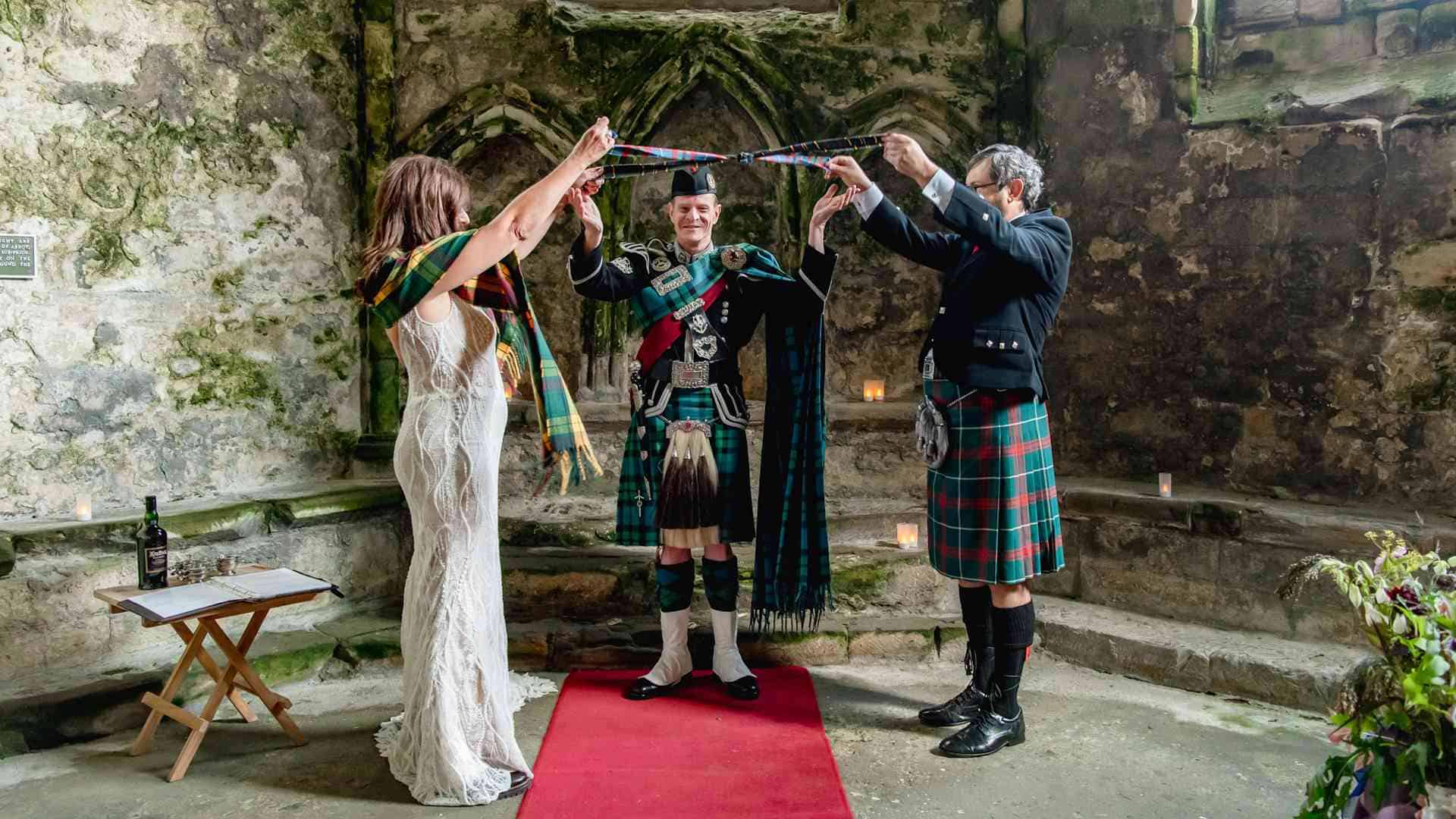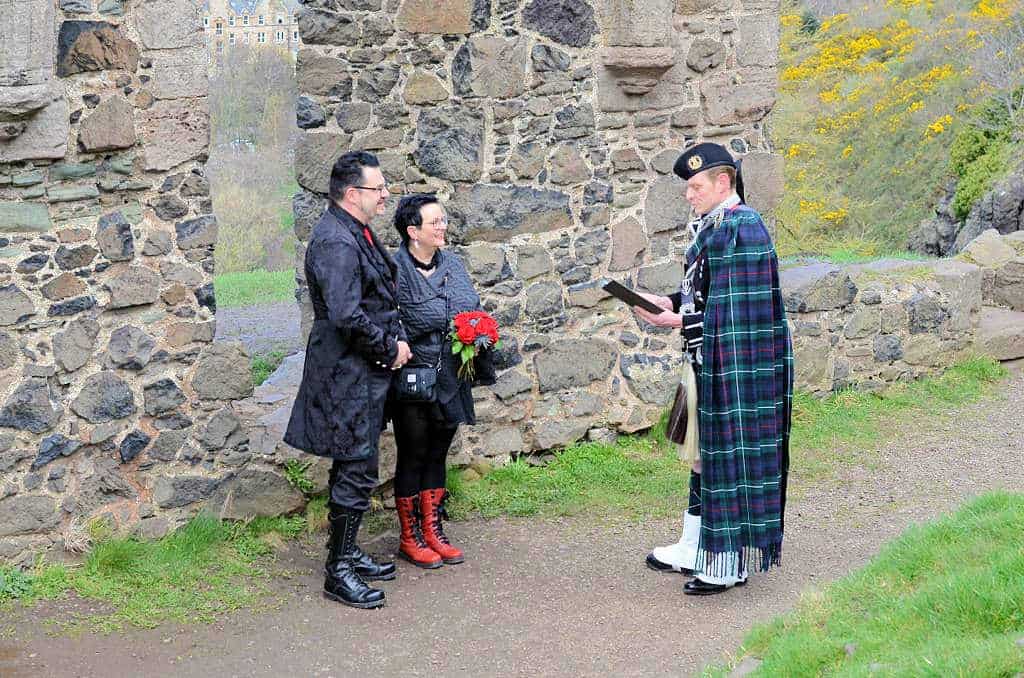celebrant bagpiper
weddings & vows renewals

Celebrant Bagpiper Scotland!
Are you coming to Scotland to have an intimate and personal elopement wedding? Have you had your legal ceremony elsewhere, but you wish to make private vows in a place of history and spectacular beauty with less frills and formality? Or, do you wish to renew your wedding vows? If so, elope to Scotland!
As an independent wedding celebrant, I offer something a little different to other wedding celebrants. In fact, I’m quite sure that I’m the only wedding celebrant in the world who does this… I can add that must-have ingredient for ANY Scottish wedding; I can play the bagpipes for you too!
This means that you’ll have your wedding celebrant and Scottish bagpiper all rolled into one! I’ll create and officiate your wedding or vows renewal ceremony, and give you guidance on ancient Scottish wedding rituals, from the oathing stones to the quaich ceremony. AND as Scottish tradition demands(!), I’ll play the bagpipes for you, dressed in the spectacular Piper’s No.1 Full Highland Dress!
So lace your brogues and find out more…
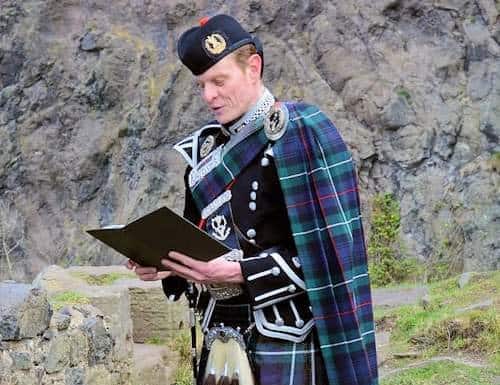
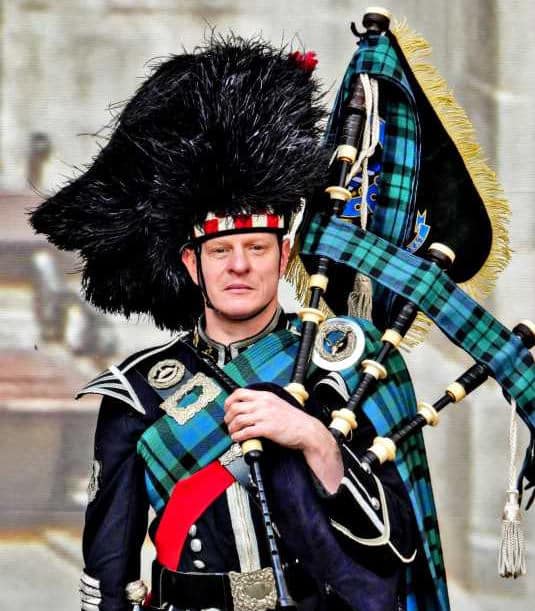
Hello and welcome!
I’m Celebrant and Bagpiper Glyn Morris
I’m an Edinburgh-based wedding celebrant specialising in elopement wedding and vows renewal ceremonies for couples who are looking a Scottish ceremony. I’ve played the bagpipes at weddings for many a year. In 2019 I began my journey to become a wedding celebrant, to provide a celebrant service for wedding and vows renewal ceremonies, combined with that of a Wedding Bagpiper.
Edinburgh Celebrant – Why do I want you to elope to Scotland?
Why I love elopements!
Okay, you’re going to elope to Scotland! This is a little different – for a start you’re running away. I’m loving it!
You won’t have anybody telling you what to do. You won’t have a large entourage who need to be wined, dined and looked after. Your day is entirely your own!
Firstly, as a proud Scot I am deeply touched that there’s something about my country which makes you wish to elope to Scotland for one of the most important days of your life. Therefore I want to share our traditions with you. I once read that being being “Scottish” is not a nationality, but a state of mind. In having you partake in our traditions, I look forward to welcoming you home!
The key thing with your elopement wedding is that it’s your day and you get to decide what to do. You maybe haven’t been to Scotland before and you’re uncertain of how to arrange an elopement wedding. I’m here to talk to you and give advice on every step of your journey. If you’re in Edinburgh before your ceremony, I’m happy to meet you, or you can schedule a video/phone call with me at any time of your convenience. Phone me as often you like. Ask as many questions as you like. I just want you to have an unforgettable elopement.
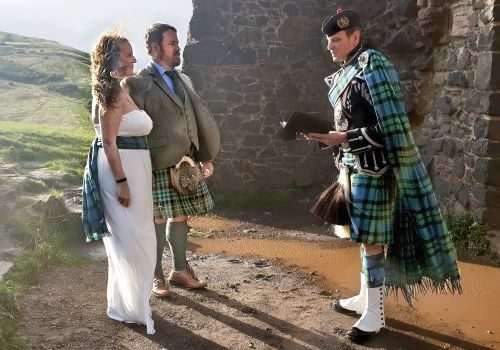
You won’t see another Wedding celebrant dressed like this!
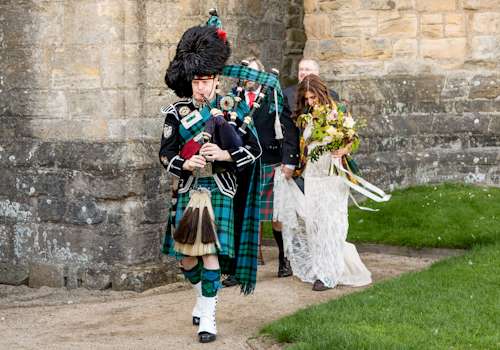
And you won’t see another celebrant doing this!
Locations and the Right to Roam
Now even though I’m totally biased, Scotland offers offer the best scenery anywhere. Within a small area we have everything from mountains, beaches, moorlands, lochs, forests and all within easy access from our cities. There are too many historic abbeys and castles to name.
And here’s the best bit… You can access nearly all of this land and there’s nothing stopping you from getting married there!
The Land Reform (Scotland) Act 2003 gave everybody rights of access to land and inland waterways throughout Scotland so long as you behave responsibly. This is known in Scotland as the Right to Roam.
There are some specific exclusions as you’d expect. You can’t just get married in my back garden without asking me, for example. However, the countryside and many of the multitude of ruined castles and abbeys, which are still quite magnificent are completely accessible.
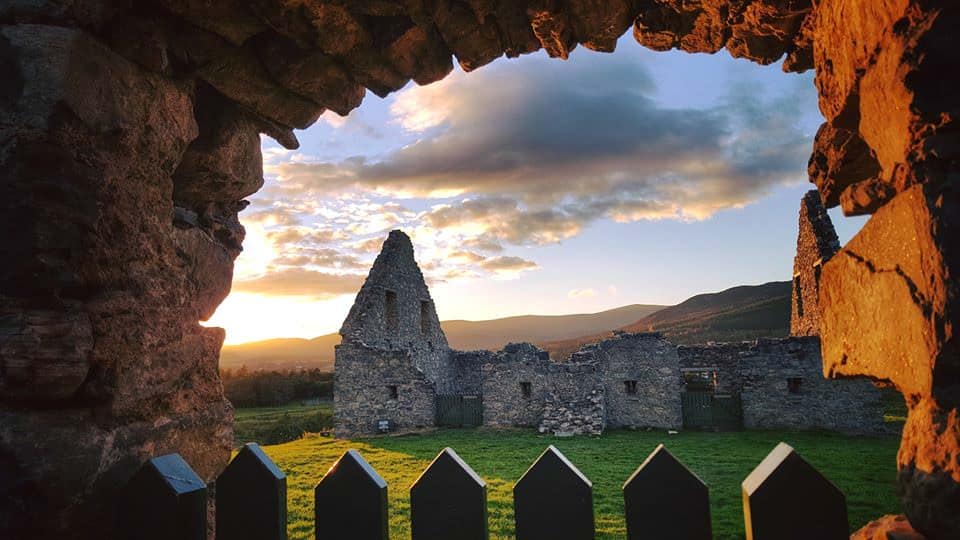
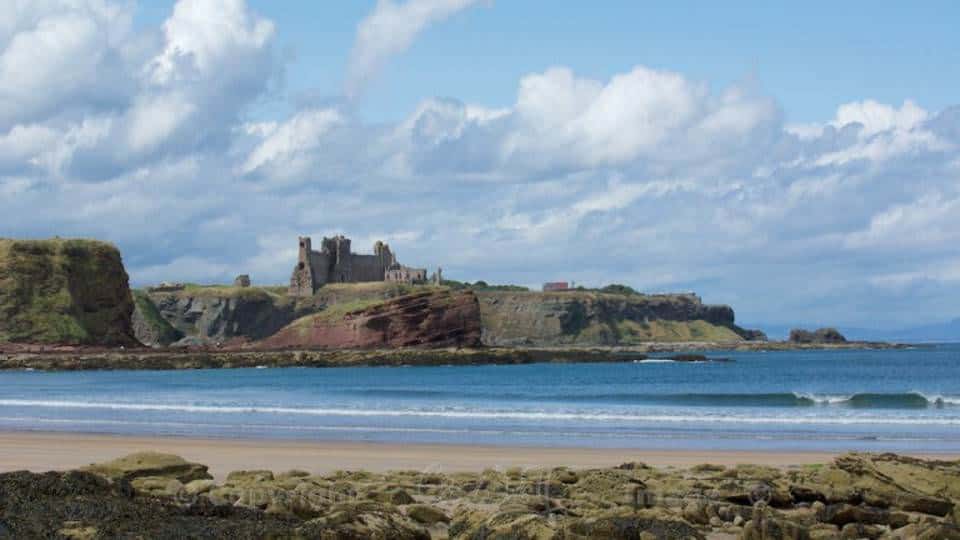
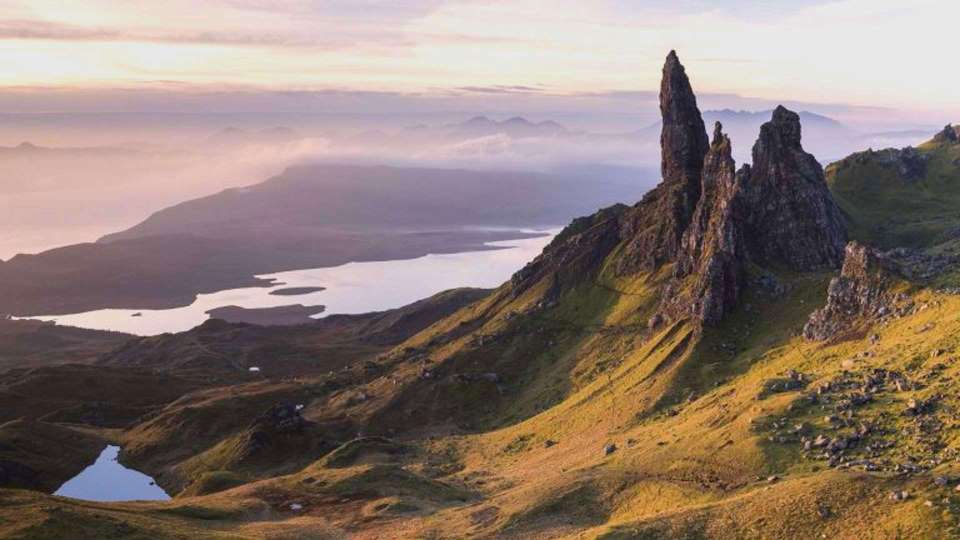
How I work as a wedding or vows renewal celebrant
Glyn the bagpiping celebrant
Most weddings and vows renewals ceremonies have an “officiant” performing the ceremony and a bagpiper, well.., just playing the bagpipes… But what if you could have your bagpiper playing the bagpipes and officiating your ceremony?
That’s what I can do for you!
I can officiate your vows renewal ceremony, or if you’re getting married and you’ve already held, or intend to hold your legal ceremony elsewhere, then I can officiate your symbolic wedding ceremony!
As well as performing the role of your Wedding Bagpiper, I perform many of the deeply symbolic rituals which have been performed at Scottish weddings for centuries. Sadly at regular civil or religious ceremonies, many of these cannot be performed by the registrar or religious official.
When I officiate your ceremony, you won’t be constrained by “protocols” which may be pre-determined by an official or wedding coordinator telling you what do do. This will be pretty much what they have all their couples do anyway. Boring!
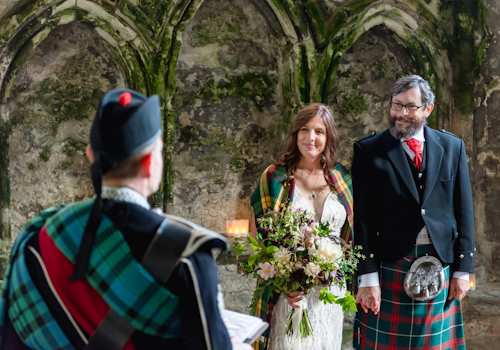
Geoff and Jacqueline eloped to Scotland from New York State. I officiated their ceremony in the beautiful and historic Inchcolm Abbey, on Inchcolm Island in the Firth of Forth near Edinburgh!
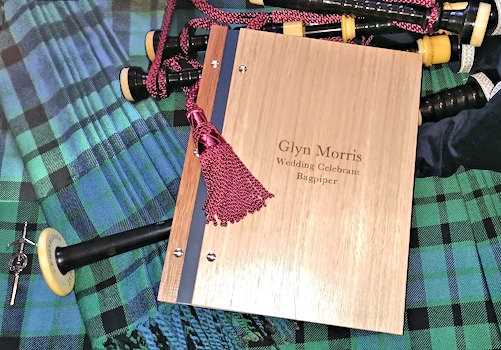
Telling YOUR story!
I firmly believe that your story, experiences, and the dreams you share as a couple are the heart of your wedding or vows renewal ceremony.
While wedding rituals hold great significance, they serve as a backdrop to the essence of your relationship and journey together. Highlighting how you met, how you fell in love, and what your marriage means to you both adds a resonating personal touch to both you as a couple, and to your loved ones attending.
I will not be at your wedding ceremony, or vows renewal ceremony only to perform some (admittedly very important) rituals and to play tunes on the bagpipes (admittedly very, very important IMHO!). Yes, I will be over the moon to conduct these rituals with you, but YOU are the main show! Telling the world about why you love each other so much that you’re going to commit, or re-commit to each other for the rest of your lives is the most important thing!
Your stories and experiences are the strong roots which make your chosen rituals significant. Remembering that amidst the rituals and formalities of your ceremony, the core focus should always remain on your love story and the life you’ve built and are building together.
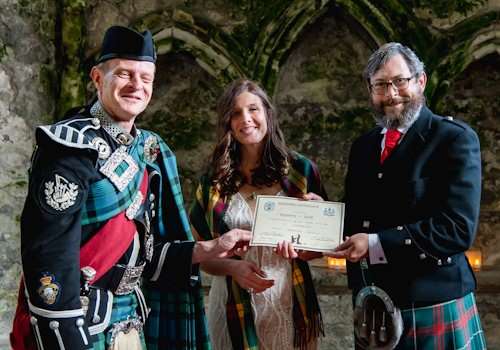
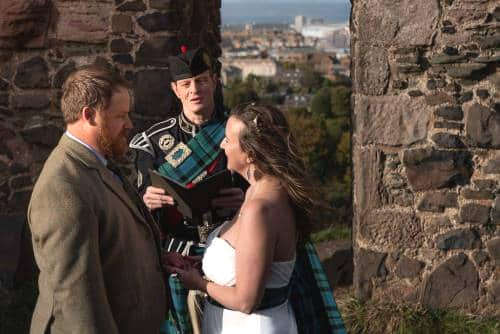
Amy and Joel eloped to Scotland all the way from Savannah, Georgia. I was proud to officiate and play the bagpipes for them at their Elopement Ceremony at the spectacular St Anthony’s Chapel, Edinburgh!
Creating your ceremony
2
Let’s talk!
When I’ve received your initial enquiry, I’ll then arrange for a video call – Zoom, Skype, WhatsApp, or whatever you’re comfortable with.
This is just a friendly chat so we can all get to know each other a little, before going any further. You guys have to feel comfortable with me, and feel that I’m the right celebrant for you.
5
Symbolic elements
What symbolic elements would you like to include in your Scottish wedding ceremony or vows renewal ceremony? We have some great ones! Here’s a guide to Scottish wedding rituals. Would you like a friend or family member to make any readings and/or be involved in any of your rituals?
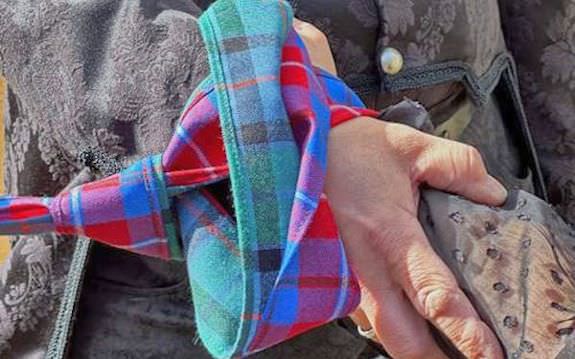
7
Review
When I’ve created a ceremony, I will always review the structure, or the “order of ceremony” with you – so everybody is clear about who is doing what and when, when you will make your vows and when your symbolic elements will take place.
1
Get in touch
So first up, please get in touch and tell me what the occasion is!
A wedding ceremony? A symbolic elopement? A Vows Renewal?
I can’t wait to hear from you!
4
Your story
It’s now time to have a proper chat to you both about about YOUR vision of your wedding ceremony vows renewal ceremony.
I’ll be asking lots of questions about the special moments and key events you’ve shared. This is about telling YOUR story to the world!
And what about your vows? If you’re holding your wedding ceremony, would you like to create your own, or would you like my help? Or if you’re renewing your vows, would you like to repeat the vows you made to each other on your wedding day, or would you like to make new ones for the day of your vows renewal ceremony?
8
On the day
Now it’s the day of your ceremony!!
In our previous discussion, I’ll have given you plenty of information about the location and what to consider in terms of travel, clothing and footwear if it’s outside.
I’ll be there one hour before to make sure everything is in order. If you’re lost, just listen out for somebody playing the bagpipes and follow that sound!
Rest assured, before we begin I’ll have a chat with both of you to calm any nerves(!) and give you a quick recap on how to make your entry. Then it’s time to let’s go and do this!
3
Questionnaire
And if after our initial call, you’ve you’ve decided that you DO feel I’m the right wedding celebrant for you, then I need to start doing some homework!
This is when the wheels get in motion. I’ll send you each a questionnaire to answer. This will contain some basic questions about you as a couple such as how long you’ve been together, who proposed and where and what’s brought you be about to tie the knot or renew you wedding vows. These answers will give me clues to what I should be discussing with you later.
6
I get to work
I’ll now have enough information to begin creating your wedding ceremony or vows renewal ceremony. Here I’ll be writing your story based upon all the information you’ve given to me earlier.
I’ll be creating the structure of your wedding ceremony or vows renewal ceremony to be able to tell your story, and to include your vows and chosen special symbolic elements.
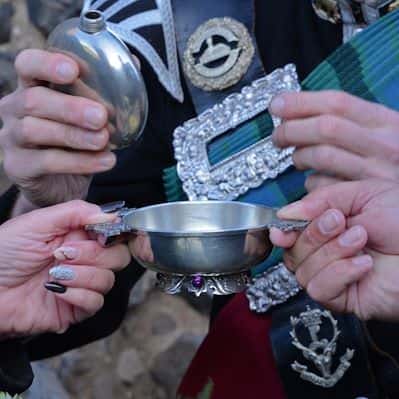
Scottish wedding & vows renewal rituals
Scottish wedding & vows renewal rituals
- Your personal Bagpiper wearing the spectacular No.1 Full Highland Dress
- Your Marriage Vows
Oathing Stones
- Exchanging of Rings
- Celtic Handfasting Ritual
- Quaich Ceremony
- Gift to the Bride
- The traditional Piper’s Toast
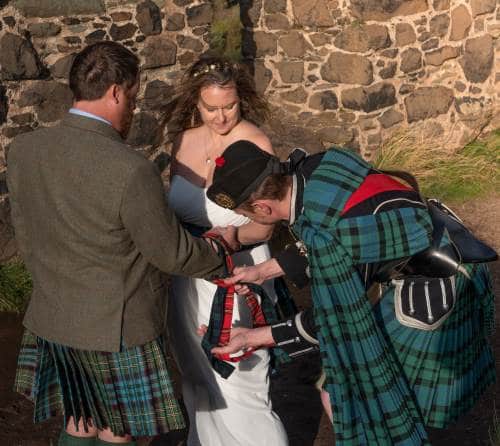
The Celtic Handfasting Ritual
Kind words
★★★★★
Glyn was an absolute joy to work with for our elopement in Glencoe! The ceremony was so lovely and felt incredibly personable for each of us as well as us as a couple. Glyn took the time to chat with us a couple of times over Zoom (we are located in the US) as well as send us a questionnaire to help add some great touches to the ceremony. We laughed, cried and enjoyed every second of our ceremony.
We participated in a few traditions that really made the ceremony feel so special – oathing stones, handfasting and quaich ceremonies. Thankful for Glyn and his preparedness with both the oathing stones and the quaich as well as a suggestion to where we could find handfasting ribbons in Glasgow while we were there!
Glyn also piped for our ceremony and continued to play while we did some photos with our photographer! It was absolutely beautiful – I wish I had more videos of him playing because it was so lovely. Especially with the backdrop of beautiful Glencoe!
So thankful we found Glyn for our elopement and we appreciate his thoughtfulness, kindness and flexibility throughout the whole process!

★★★★★
Glyn was amazing. We contacted Glyn for our Vows Renewal ceremony at Duns Castle. We then met through a zoom call and agreed with him the details of the Scottish rituals (such as handfasting) that we wanted to include in the ceremony. He proved to be attentive to our every request and we immediately perceived that he is a person who takes his role as officiant very seriously and deeply.
And so it was… the ceremony was unforgettable, unique, exciting. Glyn was REALLY with us to celebrate that special moment… and that’s what we wanted most.
And then the notes of the bagpipes, played impeccably, created a truly perfect atmosphere to make everything memorable.
Thank you very much Glyn!

★★★★★
Glyn was the absolute perfect choice for our wedding in Scotland!! He was easy to work with, very kind, came to meet us and made sure all our personal details were incorporated into our vows. Glyn and his sister Donna, who did our photography, felt like family and helped us create our fairytale wedding! Thank you, Glyn!!

★★★★★
Glyn was fantastic at our Scottish wedding celebrations at the Ghilie Dhu. He not only piped our guests in but also conducted a handfasting and quaich ceremony for us. His speech was entertaining and he made it so personal for us. He even gifted me a lucky sixpence which was such a lovely touch. Myself and new husband Stephen can’t thank you enough you really made it a brilliant day for us.

Bagpiper’s Elopement Blog
February 17, 2025
Scottish elopement location - Seacliff Beach Seacliff Beach, located in East Lothian, Scotland, is a beautiful, relatively quiet and a hidden gem 45 minutes along the coast to the south east of Edinburgh just a few miles from North Berwick. Seacliff beach is known for its picturesque scenery, offering spectacular views of The [...]
December 17, 2023
Celebrant Bagpiper for Inchcolm Abbey Wedding Ceremony In September I had the great pleasure of officiating the intimate wedding ceremony of Jacqueline and Geoff from upstate New York, at this hidden gem of a wedding venue near Edinburgh, Inchcolm Abbey! I say a hidden gem, because Inchcolm Abbey isn't somewhere that [...]
April 17, 2023
Celebrant and Bagpiper for Vows Renewal Ceremony This sunny April day was the 10th wedding anniversary of German couple, Stefan and Manuela. They requested that I be their celebrant for their Vows Renewal on the day of their 10th wedding anniversary at the ruins of St Anthony's Chapel, and of course play the [...]
